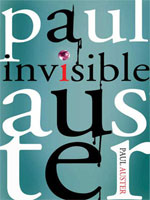
Paul Auster’s “Invisible” is a compelling, delicious, nasty read. The reader needs to adjust expectations and be reconciled to not really caring about or identifying with any of the characters, as none of them can be trusted to have an accurate picture of the central story and circumstances, and at least two of the characters are likely guilty of monstrous acts. Auster treats his characters more like moral chesspieces than people, and the book is more a puzzle for the reader to solve than a milieu in which the reader can imagine him or herself. In fact, a reference late in the book to “a laboratory of human possibilities” probably captures it best.
